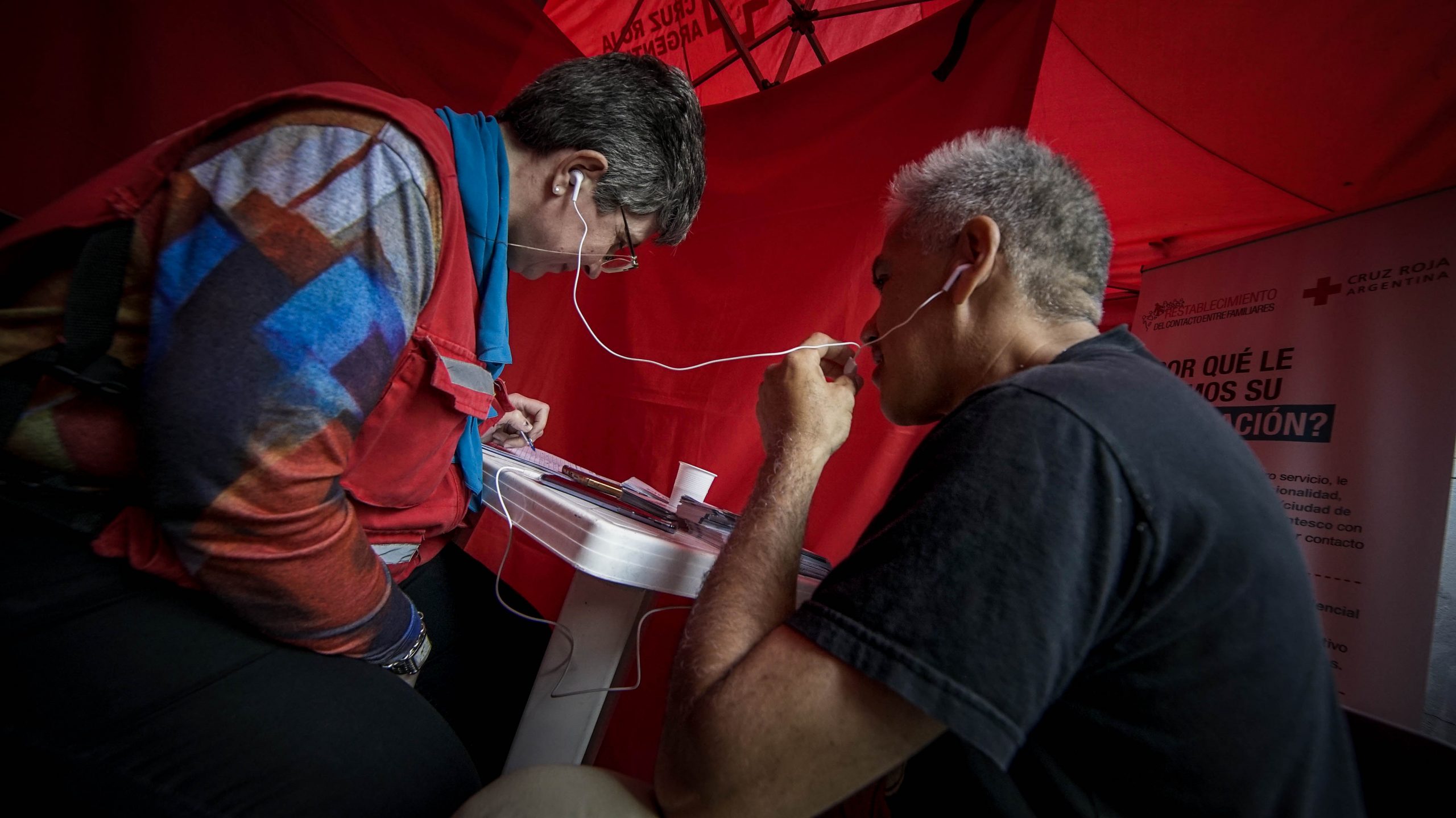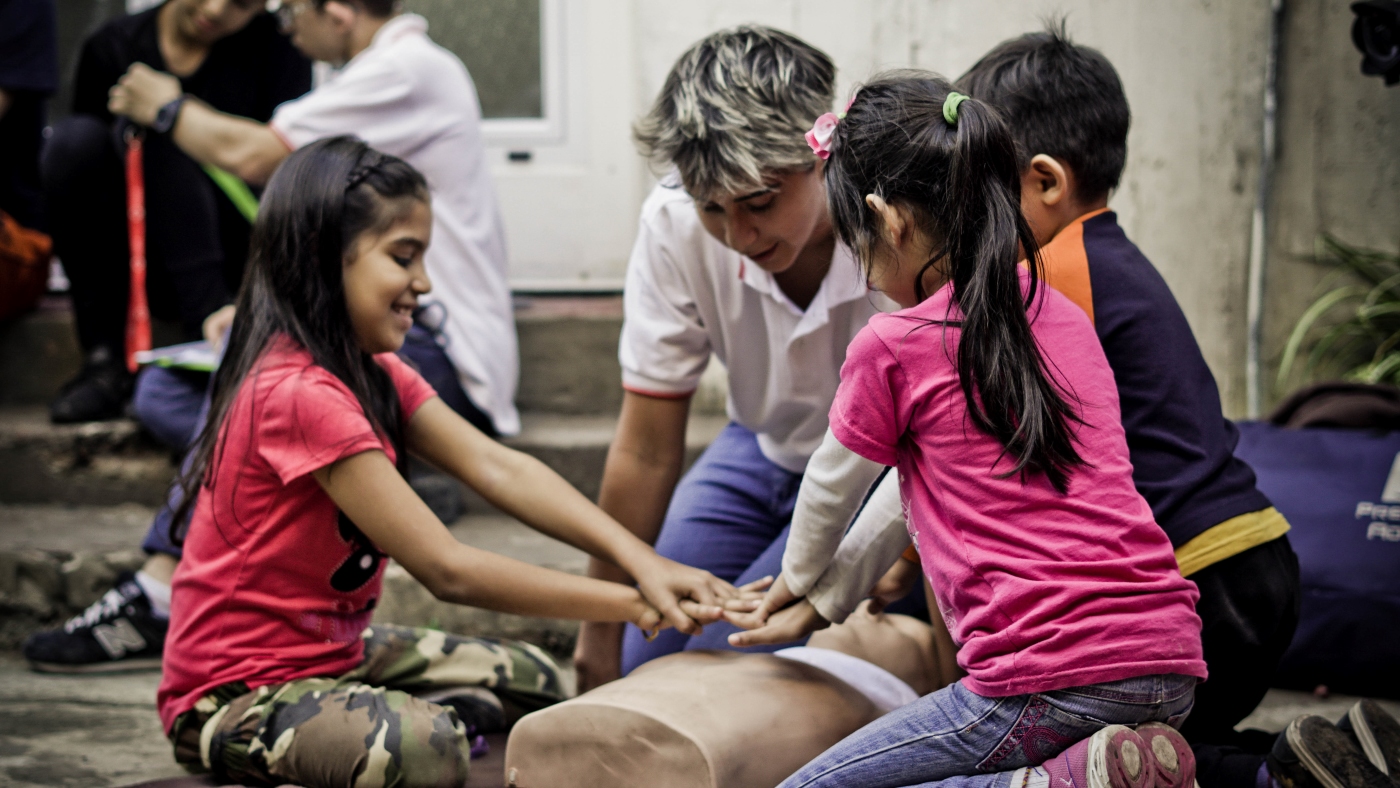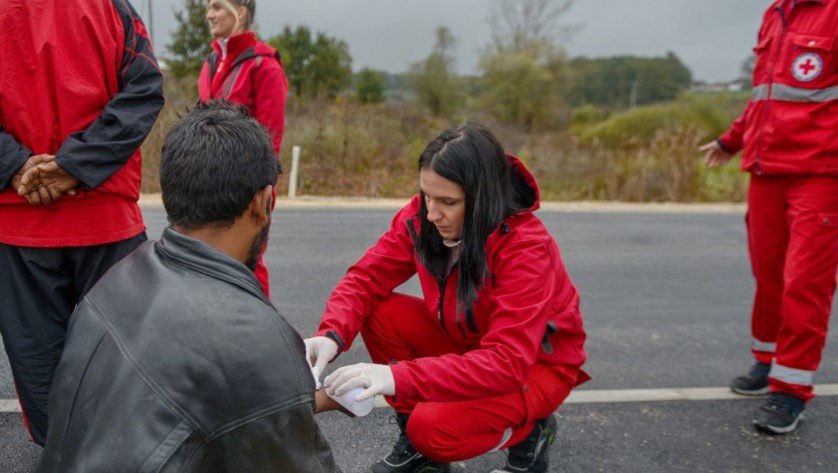In the city of la Quiaca, only a few kilometers from Argentina’s northern border with Bolivia, Delfina Aragon explains how a mobile Argentine Red Cross “humanitarian service point” provide assistance to migrants and asylum seekers.
“We provide safe drinking water, contribute to their food security through the delivery of food supplies,” she says. “We have hygiene kits, and supplies to help babies. We also offer warm clothes, because it is important to know that many times, migrants face changing geographical and climatic conditions that can be very hostile”.
“We also provide Restoring Family Links services, in which we help people get in touch with their family members back home. And mobile charging stations, where people can charge the batteries of their mobile phones so they can stay in touch with their families.”
The list of services is impressive. But the service point also offers something equally important, but which is harder to see with the naked eye. It offers a safe space, a place where migrants trust, and can feel that their concerns can be heard.
“We welcome migrants in a neutral and trustworthy space to provide basic services for women and girls, migrants and refugees,” she says. “Trust is fundamental. For me it is the basis of all humanitarian action,especially when we work with groups that are ina situation of vulnerability.
“If these people can approach our teams, and if our teams can approach them, that’s the only way that we will be able to effectively support them and that we’ll be able to guide them through different processes for migrants and refugees.”
 Red Cross Red Crescent magazine
Red Cross Red Crescent magazine 








 Tech & Innovation
Tech & Innovation Climate Change
Climate Change Volunteers
Volunteers Health
Health